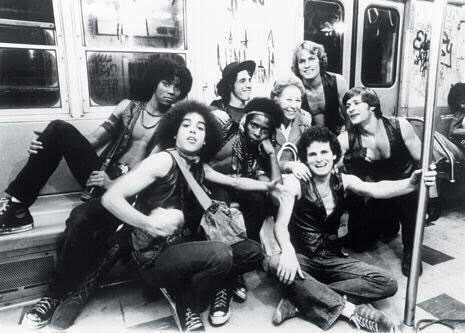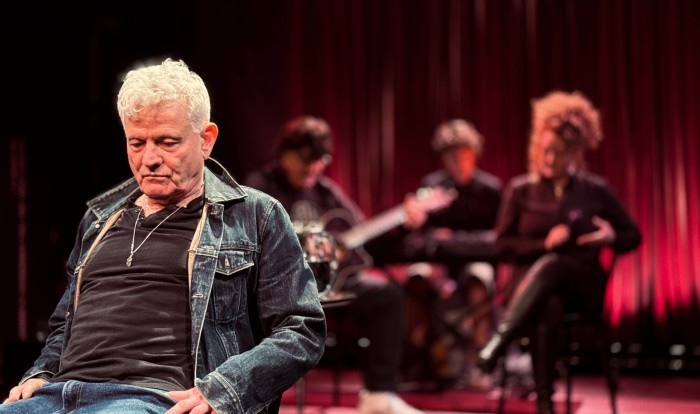***/***** (3 stars out of 5)
Sometimes more compelling than the rise and rise of an artistic icon can be the story of an artist who was within reach of the brass ring, but couldn’t quite grab it, or hold onto it with the requisite death grip. We can see ourselves in their struggles, wondering how our lives would have changed with just a little more luck, or just a little more drive. As a young man, Thomas G. Waites dropped out of Juilliard and found success in what could have been star-making roles in films like the cult classic The Warriors and the gritty seventies legal drama …And Justice for All, as well as the Broadway debut of David Mamet’s American Buffalo. Then, by his own recounting, Waites couldn’t get out of his own way, letting his ego and a drinking problem derail his career and his personal life. In Lucky Man: A Warrior’s Journey—playing through June 22 at the Gene Frankel Theatre—Waites brings the audience through his brush with the big time, as well as the toll exacted by alcohol.

Striding about a minimalist black box stage, adorned with excerpts from scripts from his movies on the walls, floor, and furniture (scenic design by Elle Kunnos de Voss), Waites occasionally breaks out into song, backed by the members of his band Heartbreak Waites (the excellent Annie McGovern, Cedric Allen Hills, and Tony Daniels). The musical interludes serve two purposes: they show off Waites’s respectable musical chops, and they paper over some of the missing connective tissue in the script. Dropping in when a transition is called for, they stand in for a true throughline.

Directed by Joe Danisi, Waites himself is charming and charismatic, with the confidence of an old pro who’s been on one stage or another for nearly five decades. He has a particular flair for inhabiting the various older male authority figures he has crossed paths with in his career, from his first agent to John Carpenter. However, the script, at times, gives the feeling of being a series of cocktail-party anecdotes about more famous people, polished to a high shine by repetition. Given the state he seems to have been in for much of the late seventies and early eighties, one wonders if he is the most reliable narrator of his own life. Waites is more interested in retelling his near-death experience on the set of The Thing than he is in examining why his marriage fell apart multiple times. Though his acting career is the main thrust of the show, it ends with a redemption narrative of hard-earned sobriety, which could have been richer and more complex with more introspection. As entertaining as it is, Lucky Man is missing the foundational emotional resonance of a true reckoning.
Lucky Man: A Warrior’s Journey is playing at the Gene Frankel Theatre (24 Bond Street, between the Bowery and Lafayette Street) through June 22.












